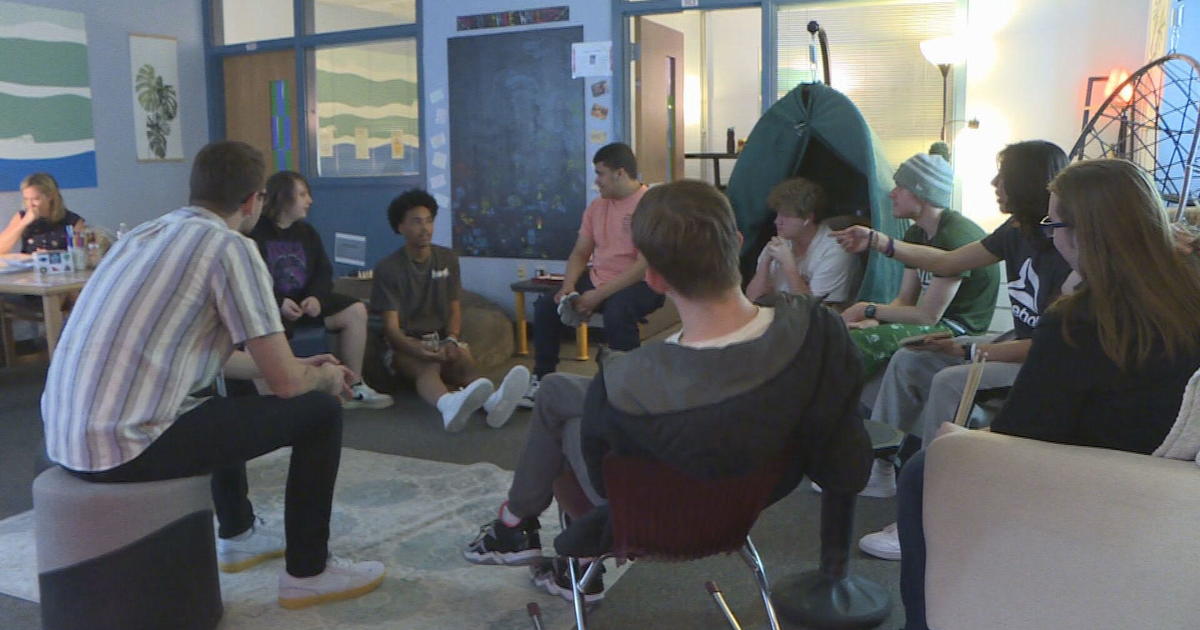UC-Springs Turning Research To Startups
COLORADO SPRINGS, Colo. (AP) — The engineering school at the University of Colorado at Colorado Springs has launched an initiative to turn research done by its faculty into marketable products and create jobs for local residents by fostering startup companies.
R. "Dan" Dandapani, dean of the UCCS College of Engineering and Applied Science, started Global Engineering Ventures in April. The initiative will help seek financial backing for startups that will turn six technologies into marketable products. Those six include national security and nanotechnology technologies, next-generation online learning and assistive technologies for the disabled.
GeV grew out of discussions between engineering schools at UCCS and the University of Arkansas at Little Rock, and a joint project called CoView DataLabs. CoView combines expertise at UCCS in data visualization and the Virtual Reality Center at the Arkansas school. One project has created a virtual model of the human spine that officials hope will be used by medical students to supplement dissection of cadavers.
Dandapani also wants to use revenue generated by the initiative to hire research faculty that are now paid by tuition and state support.
"This is not technology transfer, but pre-incubation to create companies that focus strategically and aggressively on targeted commercialization and co-development opportunities," Dandapani said. "We want to make the College (of Engineering and Applied Science) self-supporting in five years. That doesn't mean we won't rely on the state for money for instruction and basic research, but we want to make commercial research self-sustaining. I don't have a specific dollar amount in mind, but I'm looking at millions."
The schools need to find new ways to finance commercial research because state support for higher education is dwindling, making it more difficult to finance expensive instruments and other equipment needed for research, Dandapani said. Forming GeV allows the two schools, and potentially others later, to share resources, such as with the Games and Media Integration and Microelectronics labs at UCCS as well as the virtual-reality and nanotechnology labs at the Arkansas school, he said.
"In this economic climate, we have to take engineering and make it useful for the community to create companies and jobs. We can improve society by creating new products that will produce jobs," Dandapani said. "We cannot survive as a traditional engineering college. This program is designed to translate research into companies, and it is happening at engineering schools around the country, including MIT (Massachusetts Institute of Technology), Georgia Tech (Georgia Institute of Technology) and (University of) Notre Dame."
Dandapani said the school plans to use GeV to fund cutting-edge research into niche technologies where it can gain national, if not international, recognition. The school still will perform basic, government-funded research, such as work already under way on electric vehicles and propulsion systems, he said.
The school, through GeV, is talking with individual and institutional investors about financing for development of a next-generation online learning system, which includes social networking with applications run on tablet computers, said Joe Swaty, the school's project director for GeV and other initiatives. Once a company built around one of its technologies is financed, the school will either take an ownership stake in the company or receive a donation from the firm, he said. No revenue from GeV is expected until at least early 2013.
"It tells the world that the college (of Engineering and Applied Science) is open for business and answers the question about whether the college is just a fundamental science research group," said Carlos Paz de Araujo, a UCCS professor of electrical and computer engineering. "This is game-changing technology that is global in scope."
Araujo also is associate dean of the school for research and development, and was a pioneer in the development of ferroelectric memory technology, which is used in semiconductors that retain information without power and are a key part of smart cards, electronic utility meters and other applications.
UCCS and the Arkansas engineering school have raised more than $30,000 through foundations associated with each school from donors. One donor is Colorado Springs-based
The O'Neil Group, which owns defense contractor Braxton Technologies, to pay for graduate-student stipends, scholarships to recruit top researchers, research equipment, student and faculty travel as well as other GeV expenses. Donors get special briefings on GeV technologies and the opportunity to invest along with others in startups created with those technologies, Dandapani said.
"We are using globalization to create jobs in Colorado Springs instead of moving them away," Dandapani said. "We not only want to make money for the college and give faculty the opportunity to see their research transformed into products, but also for this to be an educational experience for the students. One of our goals is that the companies created with these technologies would employ UCCS students either as interns or permanent employees."
- By Wayne Heilman,The Gazette
(© Copyright 2011 The Associated Press. All Rights Reserved. This material may not be published, broadcast, rewritten or redistributed.)



